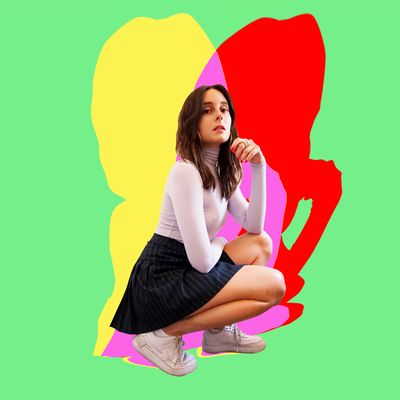
This week, we’re highlighting 20 talented writers and performers for Vulture’s annual “Comedians You Should and Will Know.” Our goal with the list is to introduce a wider audience to the talent that has the comedy community and industry buzzing. (You can read more about the methodology at the link above.) This year, for the first time, we also asked the comedians on the list to answer a series of questions about their work and comedy under quarantine. First up is Mary Beth Barone.
When did you feel that you were funny enough to make a legitimate go at comedy?
After my first open mic at UCB, I knew this is what I should do. I’m still not sure if it was blind confidence or delusion — I just knew. I emailed my improv teacher, Aaron Jackson, a few weeks after the open mic with a list of five questions, the last one being “Is pursuing a life of comedy a crazy idea?” He replied simply: “Pursuing a life of comedy IS a crazy idea!” and then I did it anyway.
Describe your comedy in five words.
Dry, dark, deadpan, crop top.
If you weren’t a comedian, what would you be doing?
I’d be a football (E.U.) WAG.
What of your work do you think you’re best known for?
I like to think it’s my live show Drag His Ass: A Fuckboy Treatment Program, but in reality it’s probably a TikTok I did in April that went viral.
What’s some of your work that you’re most proud of?
Anything I’ve not archived on Instagram. I’m especially proud of The Bird House(s), Mary Beth’s Sex Tape, Hey Coach, Weenies, Drag His Ass …
How has quarantine affected the way you approach your comedy and your audience?
Quarantine has definitely pushed me out of my comfort zone creatively. Imagine you love showering. You shower almost everyday. You can’t imagine a world where you are unable to shower, and you’ve got some big showers planned. Showering allows you to process all of the things that you do and the things that happen to you, and you’re able to put these experiences in neat little boxes with labels on them. That’s what stand-up is for me. And then all of a sudden, you can’t shower anymore, and you have no idea when you’ll be able to again. That pushed me into a lot of moments of despair and sadness but ultimately, on the other side of that, into some spaces of my mind I hadn’t accessed before. I’ve had to be inventive with how I work on and deliver jokes without a live setting, and I think as a performer, I’ve found an incredible amount of value in that.
What have you done in quarantine for comedy that you thought you would never do?
Going live on Instagram from the bath, for starters. In May, I made an experimental stand-up “short film,” using some random footage from around my parents’ house and jokes as voiceover. I was excited to bring on a director, Will Hart, for a sequel, which came out in August. I actually really love putting out stand-up this extremely weird way.
Who are some of your favorite comedians right now? Who is putting out work that excites and inspires you?
I think anyone who is trying to do this as a career should be their own favorite comedian. If the work you’re putting out isn’t the most exciting to you, it will be very hard to motivate yourself to do or make anything. Other than myself, I would say Lilly Singh.
What is the best comedy advice, and then the worst comedy advice, you’ve ever received, either when you were starting out or more recently?
When I was very young in my career, I went to meet an agent (because my best friend’s dad knew him, so he agreed to meet with me as a favor). I sat down and he immediately asked me how old I was. When I said I was 25, he said, “Okay well first off, you’re not gonna be funny until you’re in your mid-30s when you’re married with kids. Until then, you’ll have nothing to talk about.” That was terrible advice and also untrue. I have come up with many things to talk about as a childless, unmarried 29-year-old.
The best advice I got was from a friend when I was stressing out about my career not moving fast enough while also complaining about feeling too old. He said, “Life has a set speed. The most common source of dissatisfaction comes from trying to alter it. Slow it down. Or speed it up. You’re trying to do both at the same time.”
Tell us one story from your childhood that is a good representation of your life.
When I was 5, I started having to go to preschool, which I thought was pretty rude and unfair. Quite simply, I wanted to hang out with my mom all day and play with my own toys at home. It made me so sad I cried and cried at school — I’m talking, like, hysterics from drop off until pick up. Eventually, they suspended me for two weeks because I was crying so much that I was upsetting the other kids and in doing so, I got to stay home from school.
Assuming quarantine ends at some point, is there anything about the way that comedy or the industry in general has changed that you hope continues post-quarantine?
Comedians don’t hug when greeting one another at shows anymore and I hope that continues.

